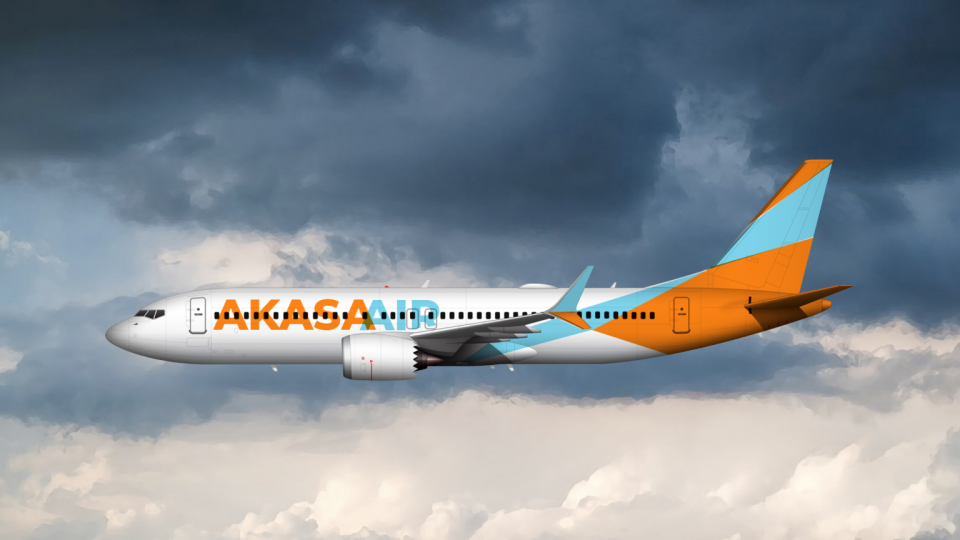
Sky wars: How Akasa plans to take on Air India-IndiGo duopoly
Buying more aircraft, as Akasa wants to do, may lead to better growth, but it is not the only airline that plans to expand its fleet

With Tata Sons set to merge all the airlines in its portfolio into Air India, the combined market share of two airlines — the other being IndiGo — will be over 80 per cent. This leaves little room for the rest of the airlines to manoeuvre themselves into an advantageous position.
According to the DGCA website, in January, Akasa Air had a market share of 2.8 per cent, SpiceJet 7.3 per cent, and Go First 8.4 per cent. Buying more aircraft, as Akasa Air wants to do, may lead to better growth for the airline, but it is not the only airline that plans to expand its fleet.
Akasa Air recently said it plans to place an order for over 100 aircraft towards the end of this year, and the new orders will be a combination of two or more types of aircraft. Air India has already placed orders for 470 aircraft, while IndiGo reportedly intends to add 500 more aircraft to its fleet of more than 300.
Need to stand apart
Belson Coutinho, co-founder and chief marketing and experience officer of Akasa Air, stated in an interview with The Federal that the airline’s main distinguishing characteristics would be its dependability, affordability, and customer- and employee-centric culture.
“We must distinguish ourselves from the rest. Without that, it is impossible to build your own space,” Coutinho stated. “We feel there is a tremendous possibility for a professionally managed airline,” he said.
Also read: Akasa Air to order ‘three-digit-figure’ fleet by year end, may go global
Coutinho noted that there are greater opportunities for startup airlines like theirs in tier-two and tier-three cities. “Just 3 to 4 per cent of Indians fly. We wish to be a part of India’s growth story, most of which will be driven by tier-two and tier-three cities. We are targeting this segment of the market,” he explained.
“We are constructing a robust model emphasising sustainable growth; if we keep to our goals and increase this market, we will be able to sustain our operations for an extended period,” he added.
The airline has placed its initial order for 72 aircraft for a list price of $9 billion, and by May this year, it aims to have a fleet of 20 aircraft, with one aircraft being delivered approximately every 15 days. It anticipates inducting all 72 aircraft in its fleet by 2027. The 72-aircraft fleet is a combination of MAX8-189 seat aircraft and MAX8-200 aircraft with 197 seats.
Eye on international routes
According to Coutinho, the airline aims to place orders for more than 100 aircraft before the end of the year. While all 72 aircraft are Boeing MAX, the new purchase will likely consist of a combination of Boeing and Airbus. Akasa Air wants to begin operating international routes by the end of 2023, as the current Boeing 737 MAX can fly for up to 5.5 hours. At present, the airline serves 14 destinations and employs around 2,000 people. It had carried over one million revenue passengers by January.
Also read: Air India’s mega aircraft order could change India’s aviation dynamics
Coutinho believes that the airline’s fuel-efficient Boeing aircraft, equipped with CFM LEAP-1B engines, enable it to offer highly affordable rates. “Our ticket structure has been quite inexpensive and competitive,” he remarked.
Concerns were raised when Akasa Air placed orders for Boeing 737 MAX aircraft, as most low-cost airlines favour Airbus A320s. However, its past performance did not inspire much confidence. The whole global fleet of Boeing 737 MAX aircraft was grounded between March 2019 and December 2020 following the deaths of 346 people in two disasters involving Boeing 737 MAX aircraft: Lion Air Flight 610 on October 29, 2018 and Ethiopian Airlines Flight 302 on March 10, 2019.
Boeing claims that the whole Max series, including the 737 MAX 8 and 9, has a single engineering blueprint that spans short-, medium-, and long-haul aircraft, allowing the customer to build up operations rapidly without sacrificing profitability or efficiency. Boeing also claims that the 737 MAX series is the most fuel-efficient aircraft in the world, with the lowest seat-mile costs for single-aisle aircraft.
Highly diverse ownership structure
Coutinho stated that the airline is currently well-capitalized and will have no trouble acquiring funding for its next phase expansion, which includes placing orders for more than 100 aircraft. The airline’s ownership structure is highly diverse, with the family of the late Rakesh Jhunjhunwala retaining roughly 46 per cent. The second largest shareholder is the Vinay Dube family, which owns a little more than 31 per cent. The whole shareholder group of SNV Aviation Pvt Ltd consists of 15 people.
Also read: Akasa Air on steady ascent despite co-promoter Jhunjhunwala’s demise
Finding a place for itself in a market dominated by two major airlines with a combined 80 per cent market share will be extremely tough. Still, Akasa Air’s management believes it wants to become the world’s most customer-focused airline. Coutinho stated, “Our products and services are designed to put the consumer at the centre of our operations.’


